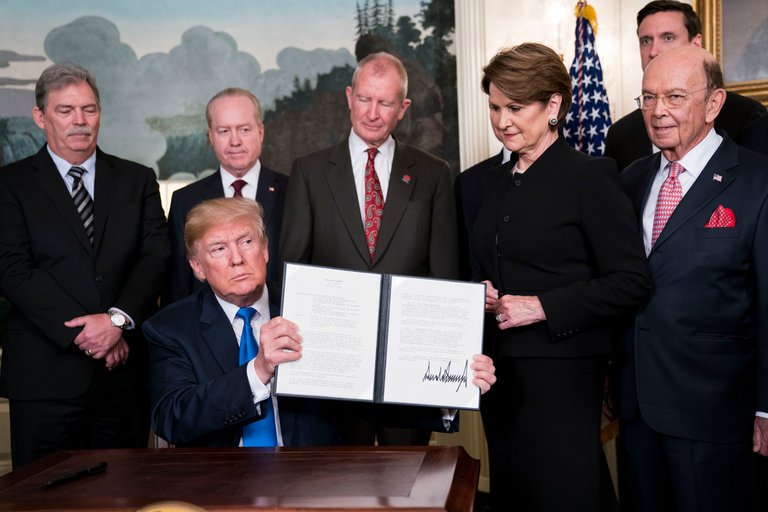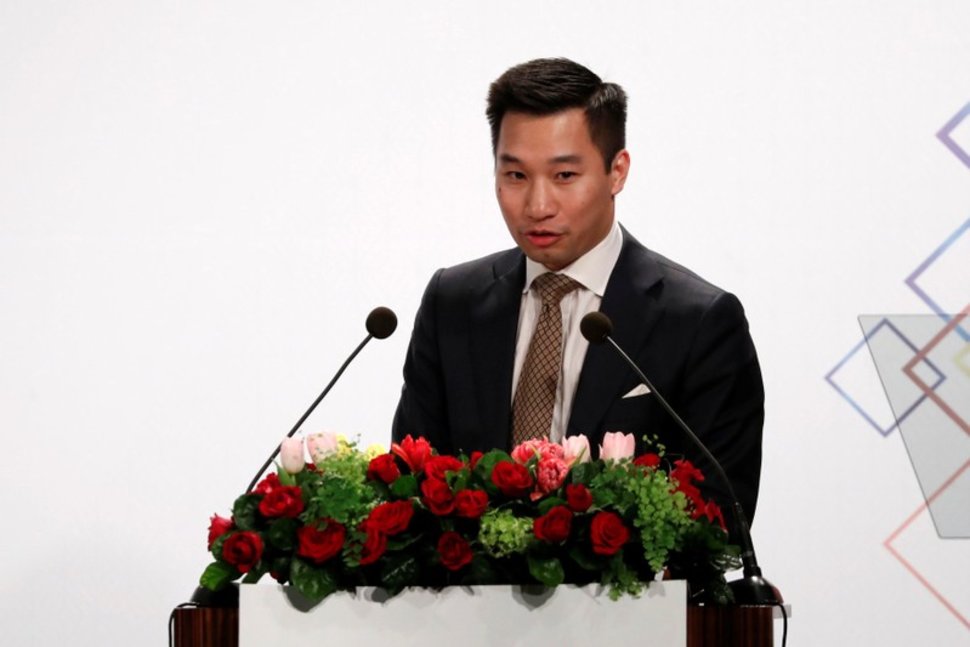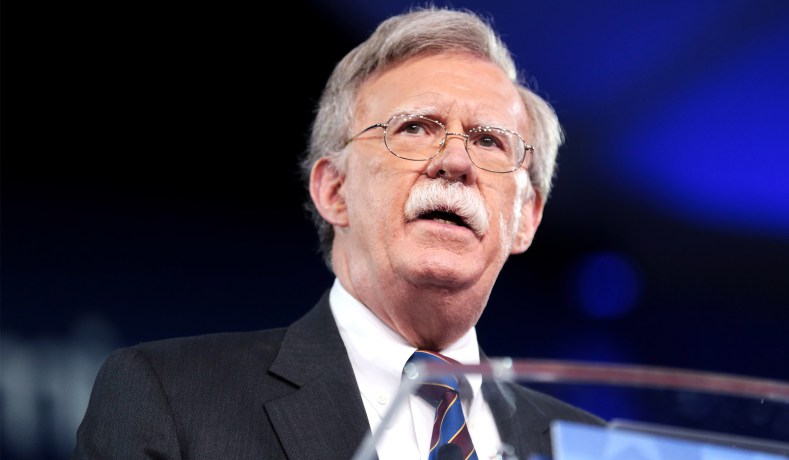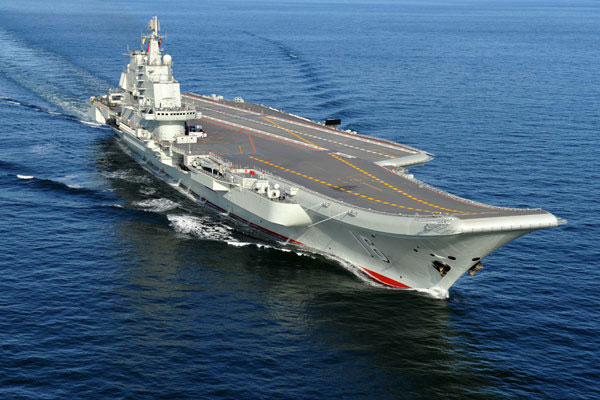
 President Trump Asks for Tariffs on Around $50 Billion Worth of Chinese Imports
President Trump Asks for Tariffs on Around $50 Billion Worth of Chinese ImportsOn Thursday, President Trump signed a memo directing the U.S. trade representative to impose tariffs on an estimated $50 billion worth of Chinese imports, heightening concerns that have emerged in recent weeks of a trade war between China and the United States. The tariffs are a response to the seven-month investigation into China's practices related to intellectual property. The U.S. Commerce Department, which conducted the "Section 301" inquiry, reported to the president that "Chinese theft of American IP currently costs between $225 billion and $600 billion annually."
The much-anticipated decision sparked immediate reaction from financial markets, American business leaders and Chinese officials. Subsequent to the announcement on Thursday, the Dow Jones Industrial Average fell more than 700 points, amounting to a nearly three percent drop. Several prominent industry leaders have spoken out in opposition to President Trump's suggested tariffs, fearing that Chinese retaliation will affect their industries. Chinese state media outlets have indicated that U.S. agricultural products, particularly soybeans, pork, cotton and sorghum, could be a potential target for Chinese tariffs. John Heisdorffer, president of the American Soybean Association, said in an interview with CNBC that China is "our number one customer" and tariffs would only help producers in other countries, especially South America, take over profitable trading opportunities with China.
On Friday, China's Commerce Ministry announced its intention to impose tariffs on $3 billion worth of U.S. goods, releasing a list of 128 American products that would be impacted, including wine, steel pipes and dried fruit. The ministry said that this was a response to President Trump's earlier announcement of tariffs on steel and aluminum, not the most recent move. In a video posted on the Facebook account of the Chinese Embassy in Washington, D.C., the Chinese Ambassador to the U.S., Cui Tiankai, said, "We don't want a trade war. But we are not afraid of it. If people want to play tough, we will play tough with them and see who will last longer."
Both countries have indicated that they will take their complaints against each other to the World Trade Organization.
 U.S. Official Visits Taiwan, Despite Strong Chinese Disapproval
U.S. Official Visits Taiwan, Despite Strong Chinese DisapprovalPresident Trump signed the Taiwan Travel Act, a measure that encourages high-level meetings between officials from the U.S. and Taiwan, into U.S. law last Friday despite China's strong and overt disapproval of the measure. In the intervening week, a U.S. official has already visited the island. At a dinner in Taipei this week, U.S. Deputy Assistant Secretary of State Alex Wong said that U.S. support for Taiwan "has never been stronger." The dinner was also attended by Taiwan's president, Tsai Ing-wen.
In his closing speech to China's National People's Congress on Tuesday, President Xi Jinping emphasized that the One China principle was an immutable principle for the country and non-negotiable for its relations with the United States. "All maneuvers and tricks to split the motherland are sure to fail," President Xi said in his speech. "Not one inch of the territory of the great motherland can be carved off from China."
The U.S. ended diplomatic relations with Taiwan in 1979, as a condition of establishing normalized relations with mainland China. Analysts quoted by the state-run Global Times suggested that the Chinese government blacklists U.S. officials who visit Taiwan and prevent them from visiting mainland China. A second U.S. official, the Deputy Assistant Secretary of Commerce for Manufacturing, Ian Steff, also left for an official visit to Taiwan this week.
Amidst tensions between China and the U.S. over potential tariffs, some analysts have expressed concern that the Trump administration may see the Taiwan issue as a potential bargaining chip in negotiations between China and the United States. An opinion piece in the South China Morning Post this week asked, "When will Beijing's patience with Taiwan run out?"
 President Trump Announces New National Security Advisor
President Trump Announces New National Security AdvisorIn a tweet on Thursday afternoon, President Trump announced that he was replacing his national security advisor, General H.R. McMaster, with former U.S. ambassador to the UN, John Bolton.
Bolton, who is 69 years old, served in the George W. Bush administration and is considered a hardliner on national security policy and a frequent advocate of military action. On multiple occasions he has expressed his desire for the U.S. to "rapidly scale up" its missile defense capabilities and military budget. He also believes in a confrontational approach when it comes to North Korea. In an opinion piece for The Wall Street Journal last month, Bolton argued that it is "perfectly legitimate for the United States to respond to the current 'necessity' posed by North Korea's nuclear weapons by striking first." He is also a vocal opponent of the Iran Deal, which he refers to as a "strategic mistake." Despite his former position as ambassador to the United Nations, he has been a long-term critic of the UN. In 1994, he said in a speech: "The Secretariat building in New York has 38 stories. If it lost ten stories, it wouldn't make a bit of difference."
In a tense moment in China-U.S. relations, commentators have drawn attention to Bolton's previous comments on China. In February, he tweeted, "The Chinese have violated UN sanctions on #NorthKorea since 2006; the difference now is that we've caught them red handed. #China always says they're going to crack down on this rogue regime, then go back to business as usual." Bonnie Glaser, an Asia expert at the Centre for Strategic and International Studies, said that Bolton supports closer U.S. ties with Taiwan.
Bolton will take over the position of national security advisor on April 9. China-watchers will likely be watching closely to see how Mike Pompeo and Bolton may influence President Trump in their new positions as secretary of state and national security advisor, respectively.
 This Week's Top Commentary
This Week's Top CommentaryAt the recently-concluded "Two Sessions," the Chinese government announced an 8.1 percent rise in military spending for its 2018 budget. China seeks to combine this with what The Brookings Institution has called a "radical modernization drive" for its military, aimed at boosting air and naval power. Does this signal an ominous portent for the strategic balance of the Asia Pacific region?
Dr. James Nolt, an Adjunct Professor at New York University and a Senior Fellow at the World Policy Institute, addressed this question in an article for China-US Focus this week. "The continual media overreach for novelty and sensation has tended to exaggerate China's potential to exert military power," he argues. "China is a regional power, not a superpower. Even as a regional power, its capability to impose solutions by force is checked by some other regional powers."
Professor Nolt analyzes China's military power by looking in turn at the country's navy, submarine fleet, nuclear weapons and South China Sea bases, and concludes that despite China's significant capabilities, its ability to project force is restrained. Read the article on China-US Focus.
Prepared by China-US Focus editorial teams in Hong Kong and New York, this weekly newsletter offers you snap shots of latest trends and developments emerging from China every week, while adding a dose of historical perspective.
- 2018-03-16 Tillerson to be Replaced by Mike Pompeo as Secretary of State
- 2018-03-09 President Trump Agrees to Meet Kim Jong-Un
- 2018-03-02 U.S. Imposes Tariffs on Chinese Aluminum
- 2018-02-23 A Week of Developments Related to North Korea
- 2018-02-16 Cui Tiankai says U.S. Should Not Advocate Confrontational Strategy Towards China
- 2018-02-09 China Releases the “No.1 Central Document” Containing New Rural Policies
- 2018-02-02 Wang Qishan Appointed to the National Legislature
- 2018-01-26 New Edition of the Focus Digest
- 2018-01-19 South Korea and North Korea to Compete Together at the Winter Olympics
- 2018-01-12 U.S. House of Representatives Passes Taiwan Bills
- 2018-01-05 U.S. Rejects Sale of Moneygram to China’s Ant Financial
- 2017-12-22 Trump’s National Security Strategy Labels China a “Revisionist Power”
- 2017-12-15 White House and Secretary of State contradict each other on North Korea talks
- 2017-12-08 China Boasts its Technology Chops at the 4th Annual World Internet Conference
- 2017-12-01 The Future of the China-US Economic Relationship
- 2017-11-17 The “Indo Pacific”: A New American Strategy for Asia?
- 2017-11-10 President Trump Revels in China’s State-Visit Red Carpet Treatment
- 2017-11-03 Will China Display Hard or Soft Power in the Era of Xi?
- 2017-10-27 All Eyes on Xi
